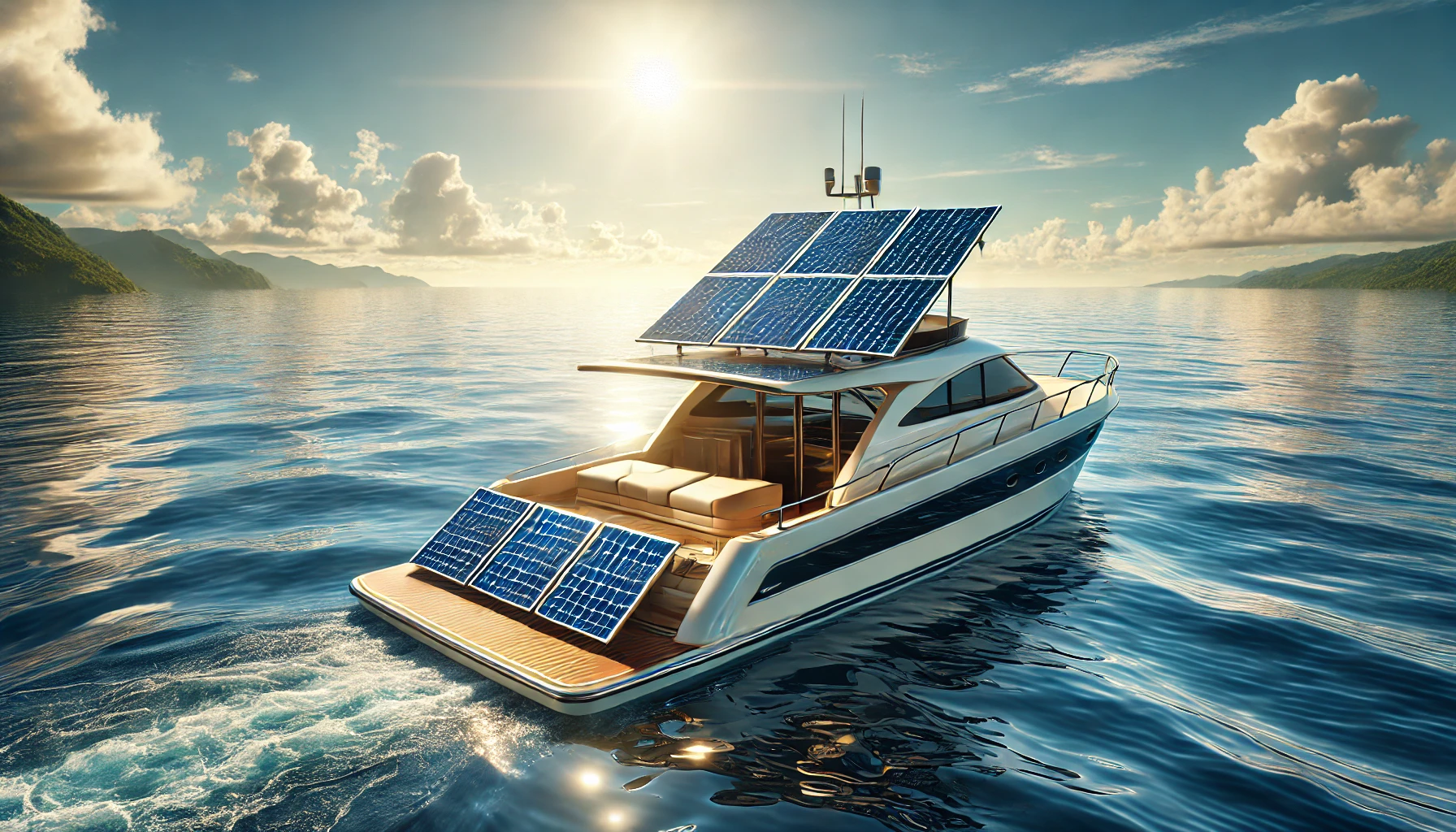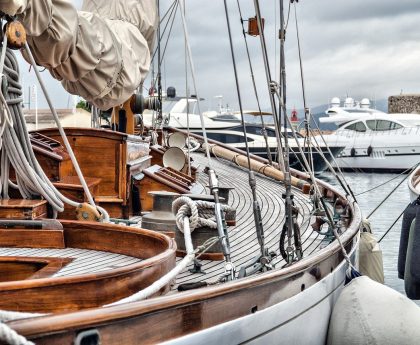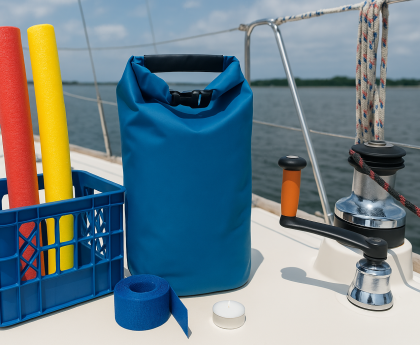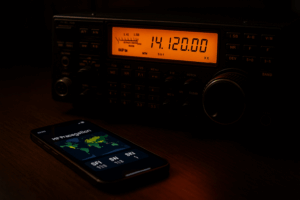The idea of harnessing solar energy to power your boat is not just environmentally friendly but also highly practical. Solar panels can keep your batteries charged, extend the life of your equipment, and enable you to stay off the grid longer. Selecting the right solar panels for your boat, however, involves careful consideration of various factors to ensure efficiency, reliability, and compatibility with your vessel. Here’s a detailed guide to help you make an informed decision.
1. Understand Your Energy Requirements
Before purchasing solar panels, calculate your boat’s energy consumption. This involves:
- Listing Your Appliances: Identify all the devices you plan to power, such as lights, navigation systems, refrigerators, water pumps, and communication equipment.
- Estimating Energy Use: Determine the watt-hours (Wh) consumed daily by each appliance. Multiply the device’s power rating (watts) by the number of hours used per day.
- Adding a Buffer: Include a 20-30% buffer to account for inefficiencies and unforeseen power needs.
For example, if your daily energy requirement is 600Wh, aim to generate at least 720Wh from your solar panels.
2. Choose the Right Type of Solar Panels
There are three main types of solar panels, each with its advantages and drawbacks:
- Monocrystalline Panels:
- Efficiency: High efficiency (15-22%).
- Durability: Long-lasting and performs well in low light.
- Best For: Boats with limited space where maximizing energy generation is crucial.
- Cost: Higher upfront cost.
- Polycrystalline Panels:
- Efficiency: Moderate efficiency (13-18%).
- Durability: Slightly less durable than monocrystalline.
- Best For: Budget-conscious boaters with sufficient space for installation.
- Cost: Lower cost but requires more space.
- Thin-Film Panels:
- Efficiency: Low efficiency (7-13%).
- Durability: Lightweight and flexible; ideal for uneven surfaces.
- Best For: Boats with curved surfaces or where weight is a concern.
- Cost: Typically cheaper but may need larger panels for equivalent output.
3. Assess Installation Space and Conditions
Evaluate where you can install solar panels on your boat:
- Available Space: Measure the dimensions of your roof, deck, or other mounting areas.
- Shading: Avoid areas prone to shading from sails, antennas, or masts. Even partial shading can significantly reduce panel output.
- Durability Needs: Ensure the panels can withstand marine conditions, such as saltwater, high winds, and UV exposure.
4. Select the Appropriate Mounting System
The mounting system affects the panel’s performance and durability. Common options include:
- Fixed Mounts: Panels are securely attached in a fixed position. Ideal for consistent exposure but limits repositioning.
- Tilt Mounts: Allows you to adjust the panel angle for optimal sunlight. Useful for maximizing efficiency, especially on long journeys.
- Flexible Panels: Directly affixed to curved surfaces. Great for aesthetic and space-saving purposes but less efficient.
5. Match Solar Panels with Batteries
Ensure compatibility between the solar panels and your boat’s battery system:
- Battery Type: Most boats use lead-acid (AGM, gel) or lithium-ion batteries. Lithium batteries are lighter, charge faster, and last longer but are more expensive.
- Voltage Compatibility: Verify that the panel output matches the battery voltage (e.g., 12V or 24V systems).
- Charge Controllers: Install a suitable charge controller to prevent overcharging and manage power flow efficiently. MPPT controllers are more efficient than PWM controllers.
6. Evaluate Solar Panel Wattage
Choose panels with sufficient wattage to meet your energy needs:
- Rule of Thumb: Divide your daily energy requirement (Wh) by the average peak sun hours per day in your region. This gives you the minimum wattage required.
- Example: If you need 720Wh/day and have 6 peak sun hours, you’ll need at least 120W of solar panels.
- Expandability: Consider adding extra panels for flexibility and future needs.
7. Look for Marine-Grade Solar Panels
Since boats operate in harsh marine environments, marine-grade solar panels are essential:
- Waterproofing: Ensure the panels are waterproof and resistant to salt corrosion.
- Durability: Opt for panels with tempered glass and robust frames.
- Warranty: Look for products with extended warranties (10-25 years) for peace of mind.
8. Optimize Energy Storage and Usage
Solar panels generate power during the day, but you’ll need storage for nighttime and cloudy days:
- Battery Capacity: Choose batteries with enough capacity to store the energy you generate. Typically, aim for a battery bank with at least 2-3 days of backup power.
- Energy Efficiency: Use energy-efficient appliances and LED lighting to reduce power consumption.
9. Budget Considerations
While cost is a significant factor, prioritize long-term value:
- Initial Investment: Include costs for panels, mounting, batteries, controllers, and installation.
- Return on Investment: High-quality systems may have a higher upfront cost but offer better efficiency, durability, and savings over time.
10. How to buy?
The best deals of marine-grade solar panels can often be found by purchasing from wholesale vendors who offer leftover stock from pallets and containers. These deals can provide discounts of up to 50%. At A1Solar, you’ll find a wide range of options to suit your needs






